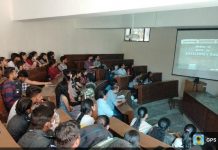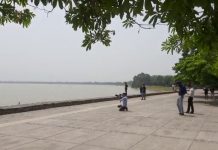New Delhi, November 14: The Supreme Court on Thursday said restrictions on women in religious places was not limited to Sabarimala alone and was prevalent in other religions as well as it referred all review pleas to a larger seven-judge bench.
Chief Justice of India Ranjan Gogoi, reading the verdict on behalf of himself and Justices A M Khanwilkar and Indu Malhotra, said the larger Bench will decide all such religious issues relating to Sabarimala, entry of women in mosques and practice of female genital mutilation in the Dawoodi Bohra community.
The CJI said endeavour of the petitioners was to revive debate on what was integral part of the religion.
Entry of women into places of worship was not limited to this temple. It was involved in the entry of women into mosques, said the SC.
The SC said: “Religious practises are not to be against public order, morality and other provisions of Part 3 of the Constitution i.e. fundamental rights.”
CJI, Justice Khanwilkar and Justice Indu Malhotra sent teh Sabarimala review to a larger Bench.
Justice Nariman and Justice Chandrachud were in dissent. They maintained their original stand that restrictions on entry of women between the age of 10 and 50 was wrong.
Majority of three judges clubs the Sabarimala temple entry issue with entry of Muslim women in mosques and Parsi women’s entry to tower of silence.
But there was no stay on the order allowing entry of women, irrespective of age groups, into Sabarimala temple.
The apex court, by a majority verdict of 4:1, on September 28, 2018, had lifted the ban that prevented women and girls between the age of 10 and 50 from entering the famous Ayyappa shrine in Kerala and had held that this centuries-old Hindu religious practice was illegal and unconstitutional.



































